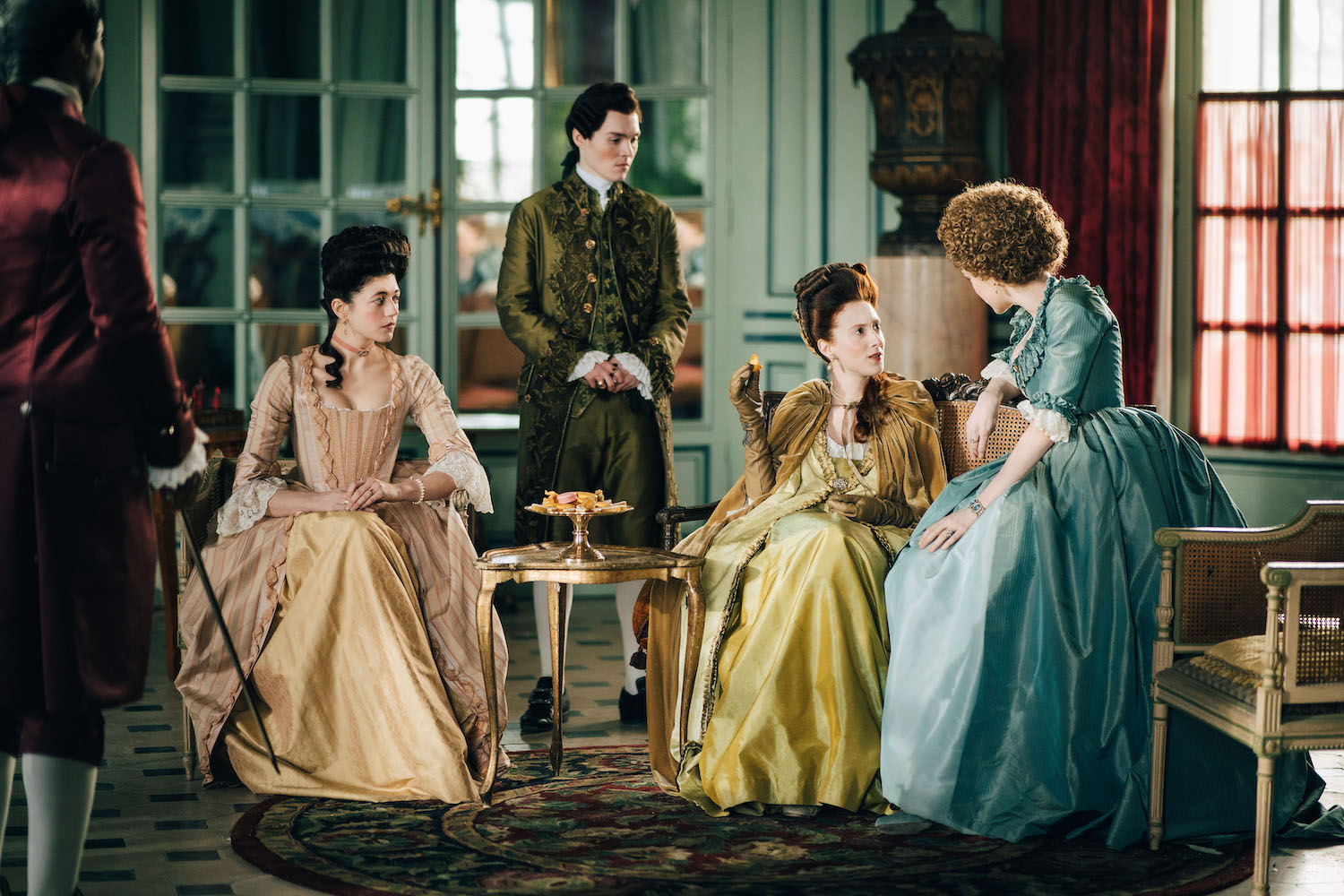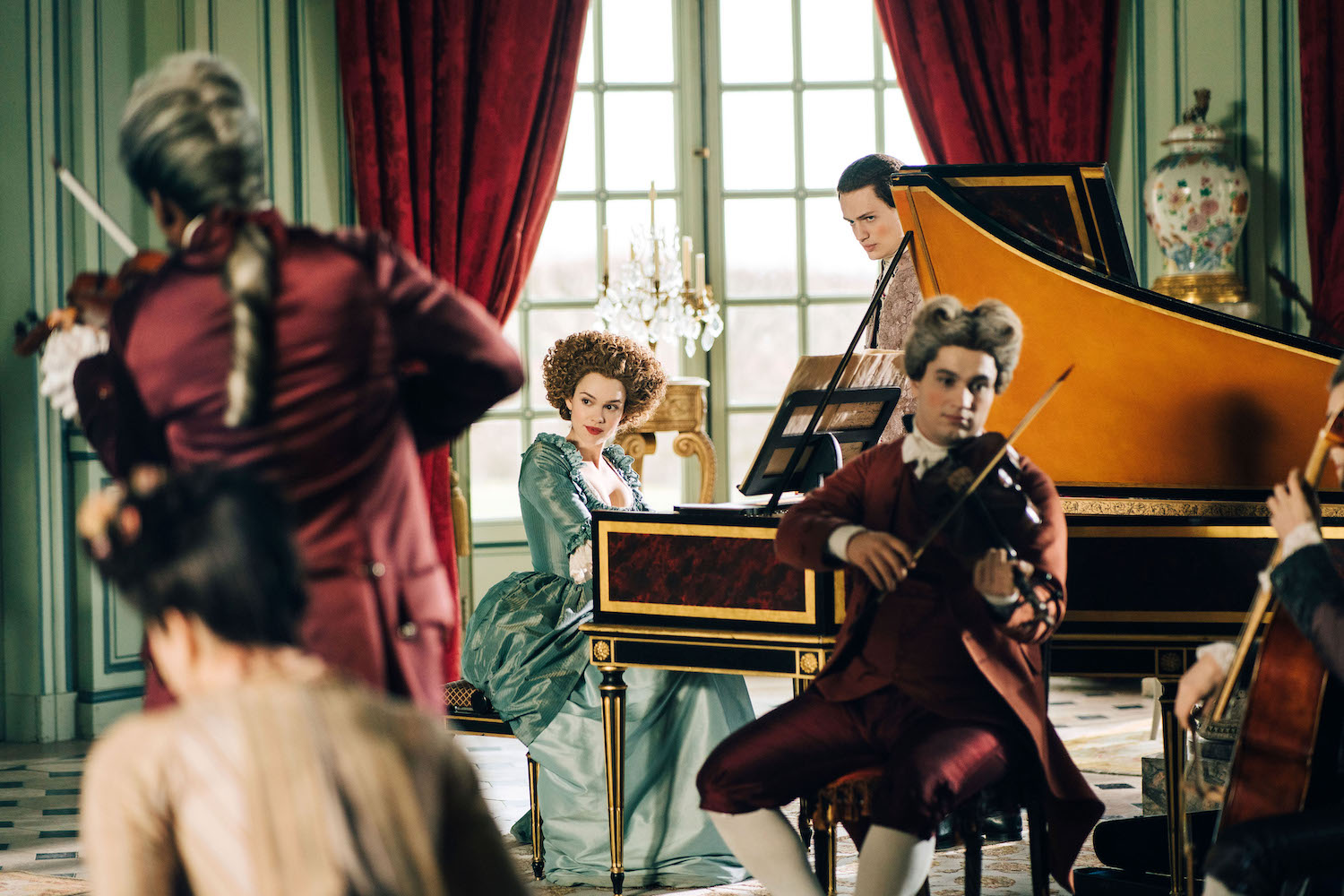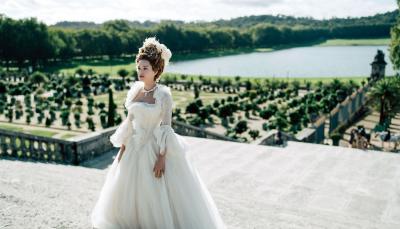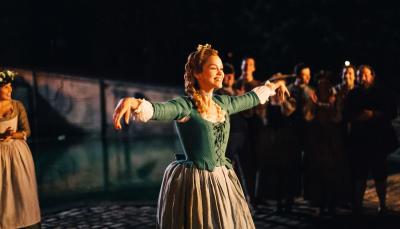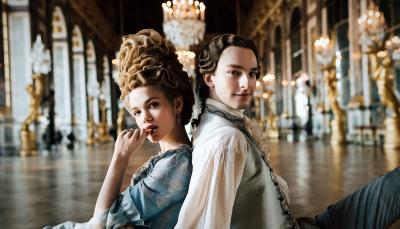'Marie Antoinette' Takes a Disappointing Step Backward In "Rebel Queen"
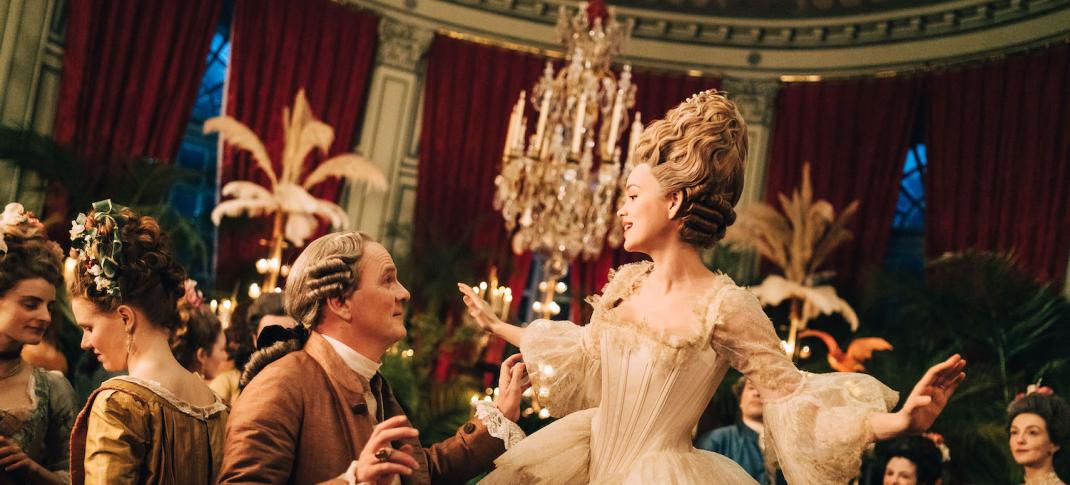
Emilia Schüle in "Marie Antoinette"
(Photo: Courtesy of © Caroline Dubois - Capa Drama / Banijay Studios France / Les Gens / Canal+)
Antoinette and Louis may be officially on the throne of France when Marie Antoinette's fifth episode opens, but somehow their move up the line of succession has caused the relationship (and the show itself) to take a big step backward. One of the most appealing parts of this series has been the refreshingly charming royal relationship at its center, a slow-burn romance that has seen our central couple inch from an overt fear of one another to genuine care and maybe even something like love throughout the first half of the season.
But despite pledging to protect one another in the face of the French court's constant drama and backstabbing, the two turn on one another almost immediately in "Rebel Queen," ending the hour in a state that seems mere inches from divorce. For the second time. How did this happen? Who can say? I mean, it's possible to argue that becoming King and Queen of one of the most powerful nations in the world is stressful and potentially even upsetting, the sort of significant life change that could lead to problems in even the strongest and healthiest marriages. It's certainly not a shock that neither of them is prepared for the role they're asked to take on.
But how did their previous partnership, which seemed genuinely solid after King Louis's death, crumble so quickly? They were flirting and making googly eyes at each other like five minutes ago; what happened? And more importantly, whatever it was, why doesn't the show think it's something we deserve to see?
The answer appears to be that being king is kind of overwhelming. Now that Louis is officially in charge, he suddenly can't make the most basic decisions on his own, and instead of turning to his wife, he's actively pushing Antoinette away. For her part, the new queen seems to be doing little besides throwing parties and trying to push her chosen political appointees on her husband, and neither of them can manage to genuinely talk to each other for five minutes. (Let alone figure out how to make a baby.)
But rather than deal with this near-total breakdown in marital communication in any real way, the two generally act out like the teenagers they are. From public and private fights to a scene that edges so close to full-on sexual assault that it may make some viewers question whether this is a show they need to keep watching, both Marie and Louis suddenly seem to transform into the absolute worst and most unlikeable versions of themselves, for reasons that Marie Antoinette itself doesn't bother to explore very much.
That strange disinterest in the building blocks of basic narrative structure carries over to the rest of the episode, in which many things seem to happen simply because the story needs them to happen. For example, the whole court is suddenly gossiping about how Marie Antoinette runs the country and is blatantly usurping her husband's power. How this is possible when the show only depicts her making vaguely aesthetic choices like appointing a Style Council and insisting the court end its mourning dress for the dead king earlier than French protocol generally dictates is something the show seems to be relatively uninterested in explaining.
To make matters worse, the court is being flooded with a barrage of origami-style paper doves, each of which bears some rumors about the supposed "rebel queen" who is accused of everything from sleeping with people who aren't her husband to seeking out the company of people the famous Chevalier de Saint-Georges, a talented musician who is notorious simply because he is Black, and the Countess de Polignac, whose marriage seems to include both her husband and her lover.
Marie Antoinette --- at least in this episode -- makes little effort to uncover who is littering Versailles with these paper messages, although Louis at least orders his newly appointed spymaster Beaumarchais to find out. (Maybe he's just bad at his job? IDK.) But what's more troubling is that the show also doesn't explain why everyone suddenly hates the queen so much. Sure, Louis's family has never really liked her, but to suddenly see them cackling gleefully over the crude sexual messages being passed around in public about her feels like a giant leap.
The worst thing she does during this episode embraces a truly dreadful hairstyle for half of it. The party she throws to celebrate the inauguration of her and her husband's reign seems pretty tame, all things considered.
Elsewhere, we also learn that Provence and Josephine have been faking her pregnancy and her subsequent "miscarriage." For what purpose they decided to do this is a complete mystery unless they both just enjoyed a few weeks of feeling important and being cossetted around the palace. Unfortunately, as with much of this episode's story, Marie Antoinette does almost nothing to explain this subplot or its characters' motivations.
Provence is a one-note sort of villain, so perhaps this was all about simply making his brother look bad or somehow proving he and his wife were fertile and capable of providing an heir where Antoinette and Louis were not. After all, he's the spare and longs to be king. Maybe this plan was meant to force everyone at court to choose him over Louis? What was (or is, considering Josephine is still laid up in bed pretending to be suffering the aftereffects of her "miscarriage") the point of any of this?
One can only hope that the messy narrative of "Rebel Queen" is some awkward table setting for the back half of the season, an hour that's moving the pieces into place to finally bring Louis and Antoinette together for good (famously, the two only managed to consummate their marriage after a visit from one of the queen's family, and it looks like that's what we're getting next week). Because as series low points go, this one is pretty darn rough.

